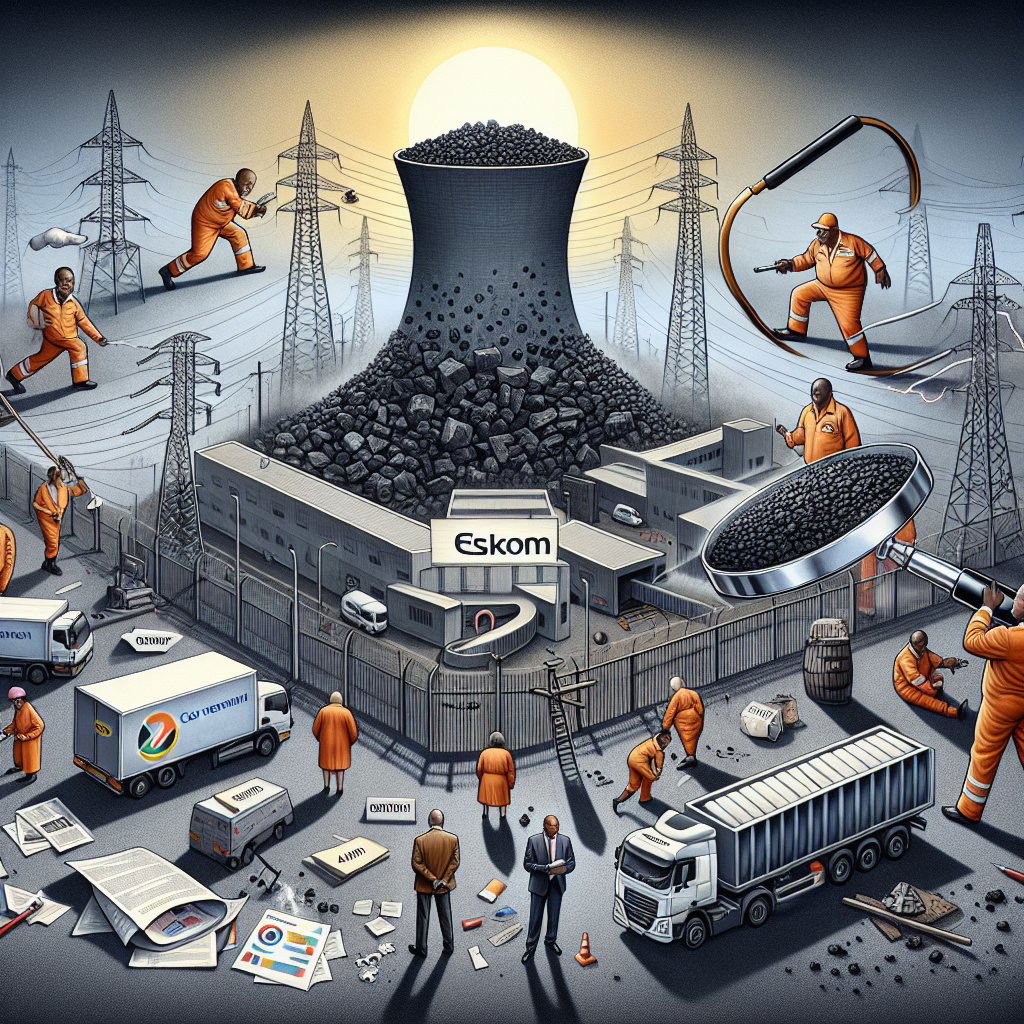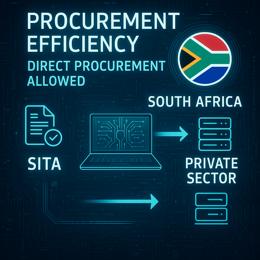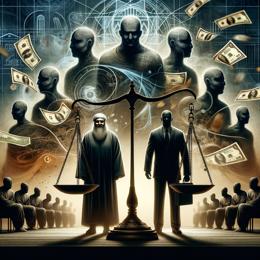Image: AI generated for illustration purposes
Minister Gordhan Demands Stronger Action Against Eskom Corruption
Eskom, the South African power utility, finds itself at the centre of extensive corruption inquiries as Public Enterprises Minister, Pravin Gordhan, insists that there is a substantial shortfall in the arrest and conviction of corrupt individuals within the organization. Delivering remarks before Parliament's Standing Committee on Public Accounts (Scopa), Gordhan alongside Eskom's acting CEO, Calib Cassim, conveyed a blunt assessment regarding the ongoing struggle against corruption that continues to undermine the utility's operations.
With notable frustration, Gordhan highlighted the enduring challenge of dismantling the deeply ingrained culture of corruption that not only exists within Eskom but also extends to its external business dealings. He remarked on the boundless greed contaminating the ecosystem, which had not yet resulted in a satisfactory number of culprits donning "orange uniforms"—a colloquial reference to prison attire in South Africa.
The briefing to Scopa was expected to shed light on the progress made following the committee's recommendations to enhance governance and performance at Eskom. Changes, according to Gordhan, are perceivable post the scrutinizing unfolding of the Zondo Commission's findings, with the new board actively "cleaning up" and addressing previous forensic oversights.
An overarching theme in combating corruption is the necessity to confront and alter Eskom's internal culture. Gordhan emphasized that greed appears to be an overwhelming motive force that jeopardizes the integrity of pivotal institutions such as Eskom.
The Special Investigating Unit (SIU) has steadily expanded its investigative efforts into the corruption at Eskom, as SIU spokesperson Kaizer Kganyago reveals the scope of their work is extensive and continuously broadening with new revelations. Initially confined to employee-level probes, the SIU's focus has since grown to encompass more significant concerns, including coal contract maleficence, sabotage, and the procurement of inferior-quality coal that has led to equipment damage at the utility.
Kganyago iterated that the SIU's purview has evolved from individual indictments to scrutinizing broader processes and syndicates that perpetuate the corruption cycle through coal and diesel supply to the utility. Notably, the prosecution of private companies has yielded results, with engineering firm ABB repaying R1.6 billion to Eskom in one of the most significant restitution deals.
This holistic approach aims to ensure that law enforcement addresses corruption at its roots, rather than merely penalizing its foot soldiers, such as truck drivers implicated in irregular coal deliveries. The goal is to unravel and neutralize the core networks of malfeasance that enable and profit from the corruption that has plagued Eskom and contributed to South Africa's ongoing energy crisis.
As the investigations and follow-up actions intensify, the government's message is clear: the cleanup within Eskom must proceed with vigor and result in tangible outcomes that extend beyond audits and into the courtroom.










